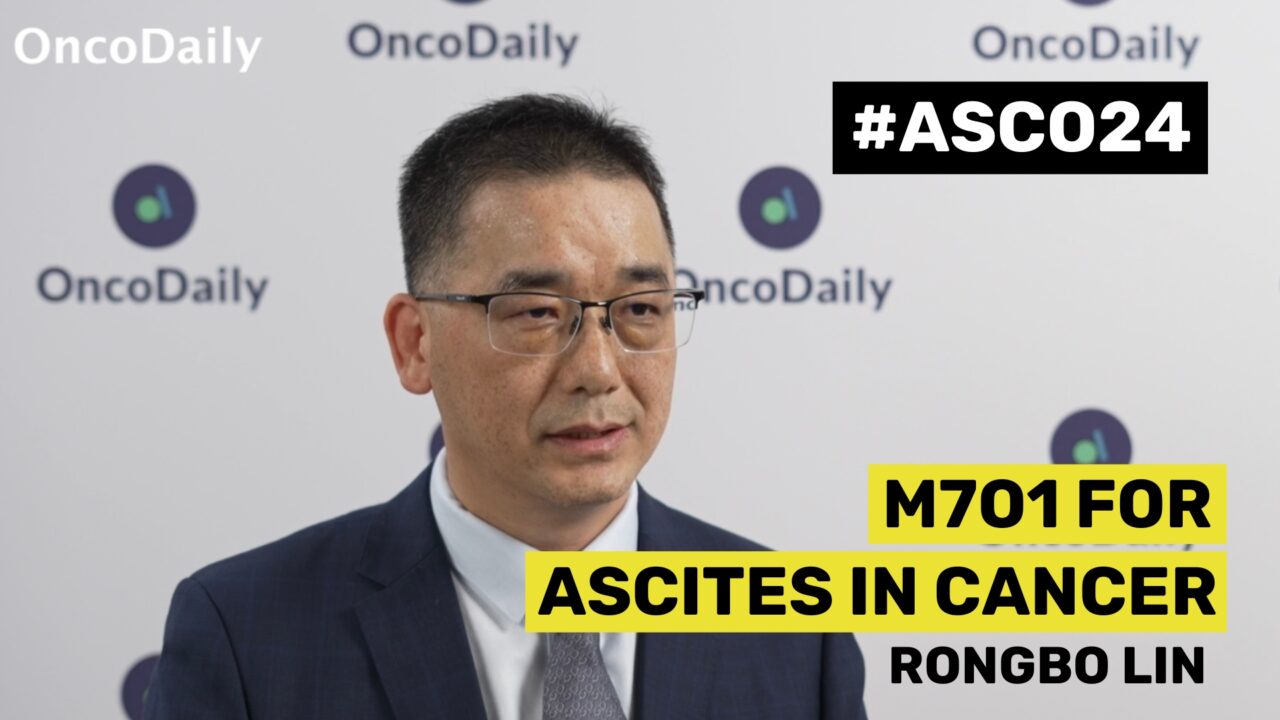
ASCO24 Updates: Rongbo Lin on M701 for Ascites in Cancer
The American Society of Clinical Oncology (ASCO) Annual Meeting is one of the largest and most prestigious conferences in the field of oncology. This year, the meeting took place from May 31 to June 4 in Chicago, Illinois. The event gathers oncologists, researchers, and healthcare professionals from around the world to discuss the latest advancements in cancer research, treatment, and patient care. Keynote sessions, research presentations, and panel discussions are typically part of the agenda, providing attendees with valuable insights into emerging trends and innovations in oncology.
This year, OncoDaily was at ASCO 2024 for the first time covering the meeting on-site. We had the pleasure of interviewing researchers who summarized the highlights of their work.
In this video, Rongbo Lin, MD, GI Medical Oncologist, Fujian Cancer Hospital, Fuzhou, China, shared insights on ‘An anti-EpCAM x anti-CD3 bispecific antibody, M701, for the treatment of malignant ascites due to epithelial cancer: Interim results of a prospective randomized controlled phase II trial.‘
Hello, I’m Dr. Lin from Fujian Cancer Hospital. I’m a GI medical oncologist. This year we present a study about M701.
This is the biospecific antibody with the CD3 and ibuprofen. The study focuses on the patient with the gastric cancer and colonic cancer and urea cancer. As you know, medical ascites is a big issue for the patient who, in the later stage, they can cause many syndromes to decrease the patient’s quality of life.
So this study is two-arm control randomized study. One arm is M701, another arm is control arm, which is the pure tapping fluid. And the point of this study is PUFS, pulmonary pulmonary fluid free survival.
Our study, 84 patients were enrolled in this study. One arm is in the M701 arm is 43 patients and control arm is 41 patients. Our study showed PUFS is significantly improved.
A median PUFS is 54 versus 24 days. The overall survival also tends to improve. It’s 113 months versus 76.
Especially in gastric cancer, the overall survival is significantly improved. The conclusion of this study is M701 can significantly control the ascites for the patient. Also can improve patient quality of life and tends to improve patient overall survival.
Based on the promising result, now phase 3 study is ongoing.
More videos and content from ASCO 2024 on OncoDaily.
-
Challenging the Status Quo in Colorectal Cancer 2024
December 6-8, 2024
-
ESMO 2024 Congress
September 13-17, 2024
-
ASCO Annual Meeting
May 30 - June 4, 2024
-
Yvonne Award 2024
May 31, 2024
-
OncoThon 2024, Online
Feb. 15, 2024
-
Global Summit on War & Cancer 2023, Online
Dec. 14-16, 2023
